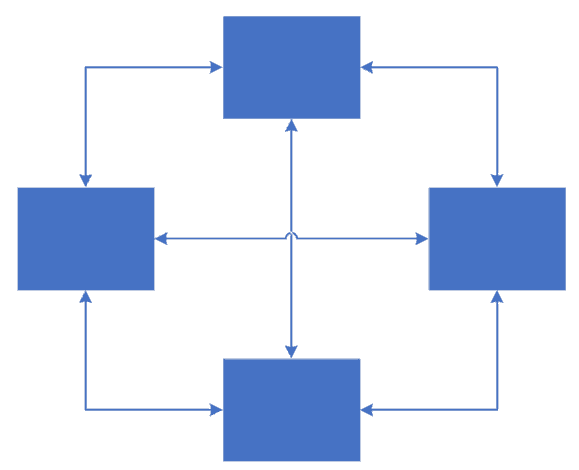Bing announced a new link penalties. These link penalties are focused on taking down private blog networks (PBNs), subdomain leasing and manipulative cross-site linking.
Inorganic Site Structure
An inorganic site structure is a linking pattern that uses internal site-level link signals (with subdomains) or cross-site linking patterns (with external domains) in order to manipulate search engine rankings.
While these spam techniques already existed, Bing introduced the concept of calling them “inorganic site structure” in order to describe them.
Bing noted that sites legitimately create subdomains to keep different parts of the site separate, such as support.example.com. These are treated as belonging to the main domain, passing site-level signals to the subdomains.
Bing also said sites like WordPress create standalone sites under subdomains, in which case no site level signals are passed to the subdomains.
Examples of Inorganic Site Structure
An inorganic site structure is when a company leases a subdomain in order to take advantage of site-level signals to rank better. There have been
Private blog networks were also included as inorganic site structure
Domain Boundaries
Bing also introduced the idea of domain boundaries. The idea is that there are boundaries to a domain. Sometimes, as in the case of legitimate subdomains (ex. support.example.com), those boundaries extend out to the subdomain. In other cases like WordPress.com subdomains the boundaries do not extend to the subdomains.
Private Blog Networks (PBNs)
Bing called out PBNs as a form of spam that abuse website boundaries.
“While not all link networks misrepresent website boundaries, there are many cases where a single website is artificially split across many different domains, all cross-linking to one another, for the obvious purpose of rank boosting. This is particularly true of PBNs (private blog networks).”
Subdomain Leasing Penalties
Bing explained why they consider subdomain leasing a spammy activity:
“…we heard concerns from the SEO community around the growing practice of hosting third-party content or letting a third party operate a designated subdomain or subfolder, generally in exchange for compensation.
…the practice equates to buying ranking signals, which is not much different from buying links.”
At the time of this article, I still see a news site subdomain ranking in Bing (and Google). This page belongs to another company. All the links are redirected affiliate type links with parameters meant for tracking the referrals.
According to Archive.org the subdomain page was credited to an anonymous news staffer. Sometime in the summer the author was switched to someone with a name who is labeled as an expert, although the content is still the same.
So if Bing is already handing out penalties that means Bing (and Google who also ranks this page) still have some catching up to do.
Cross-Site Linking
Bing mentioned sites that are essentially one site that are broken up into multiple interlinking sites. Curiously Bing said that these kinds of sites already in violation of other link spam rules but that additional penalties will apply.
Here’s the kind of link structure that Bing used as an example:

Bing used the above example to illustrate interlinked sites that are really just one site.
That link structure resembles the structure of interlinked websites that belong to the same company. If you’re planning a new web venture, it’s generally a good idea to create a site that’s comprehensive than to create a multitude of sites that are focused on just a small part of the niche.
Curiously, in reference to the above illustration, Bing said that kind of link structure was already in violation of link guidelines and that more penalties would be piled on top of those:
“Fig. 3 – All these domains are effectively the same website.
This kind of behavior is already in violation of our link policy.Going forward, it will be also in violation of our “inorganic site structure” policy and may receive additional penalties.“
Takeaway
It’s good news to hear Bing is improving. Competition between search engines encourage innovation and as Bing improves perhaps search traffic may become more diversified as more people switch to Bing as well as other engines like DuckDuckGo.
Read Bing’s announcement: Some Thoughts on Website Boundaries


